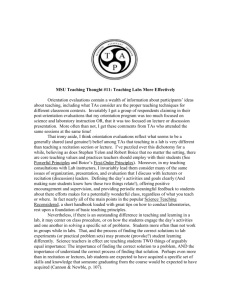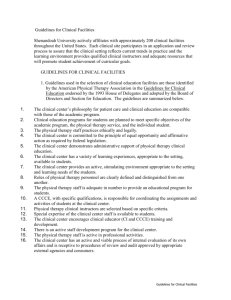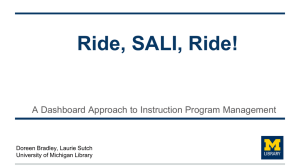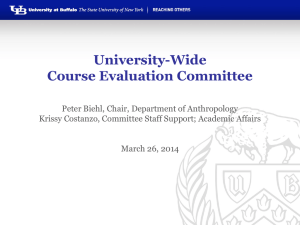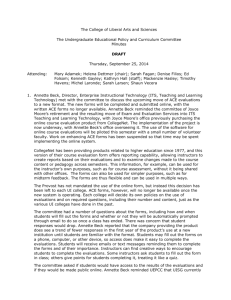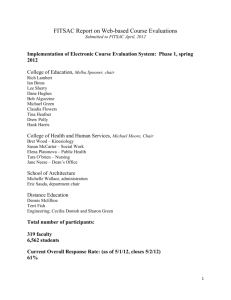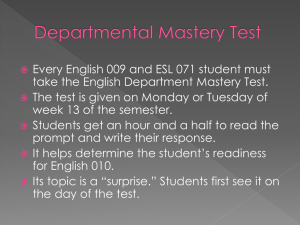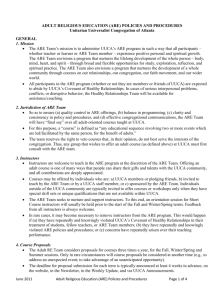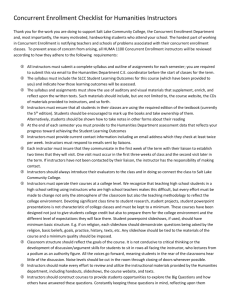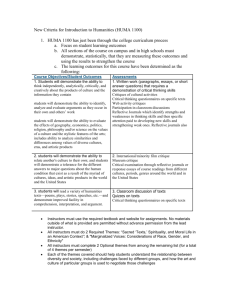April 23 - College of Liberal Arts & Sciences
advertisement
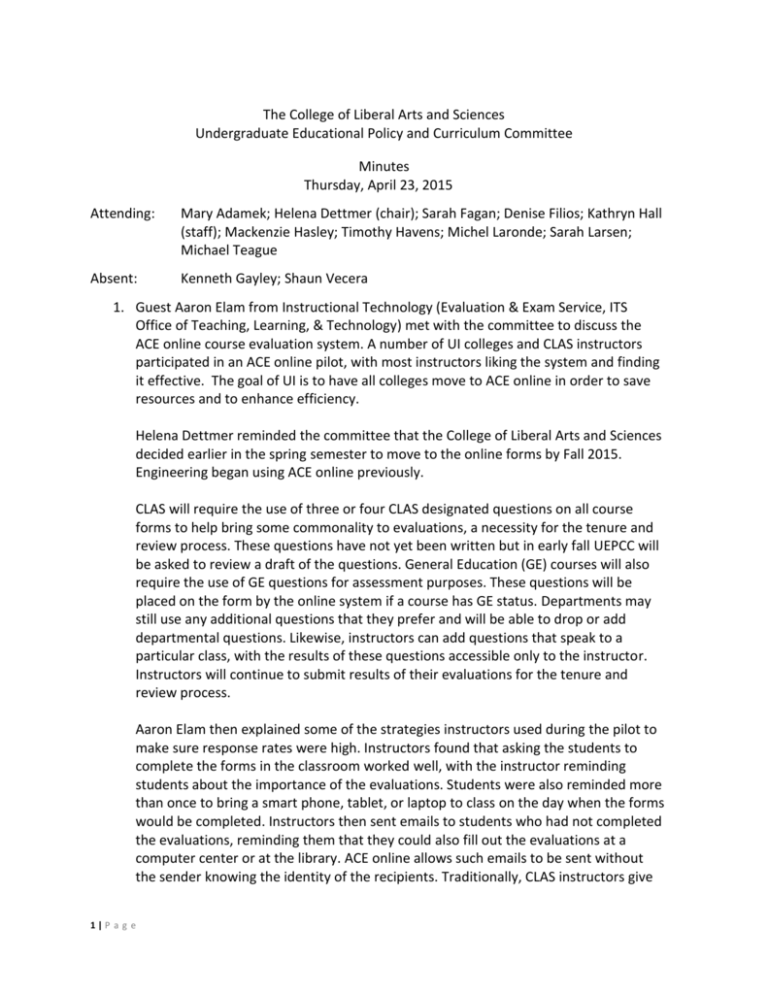
The College of Liberal Arts and Sciences Undergraduate Educational Policy and Curriculum Committee Minutes Thursday, April 23, 2015 Attending: Mary Adamek; Helena Dettmer (chair); Sarah Fagan; Denise Filios; Kathryn Hall (staff); Mackenzie Hasley; Timothy Havens; Michel Laronde; Sarah Larsen; Michael Teague Absent: Kenneth Gayley; Shaun Vecera 1. Guest Aaron Elam from Instructional Technology (Evaluation & Exam Service, ITS Office of Teaching, Learning, & Technology) met with the committee to discuss the ACE online course evaluation system. A number of UI colleges and CLAS instructors participated in an ACE online pilot, with most instructors liking the system and finding it effective. The goal of UI is to have all colleges move to ACE online in order to save resources and to enhance efficiency. Helena Dettmer reminded the committee that the College of Liberal Arts and Sciences decided earlier in the spring semester to move to the online forms by Fall 2015. Engineering began using ACE online previously. CLAS will require the use of three or four CLAS designated questions on all course forms to help bring some commonality to evaluations, a necessity for the tenure and review process. These questions have not yet been written but in early fall UEPCC will be asked to review a draft of the questions. General Education (GE) courses will also require the use of GE questions for assessment purposes. These questions will be placed on the form by the online system if a course has GE status. Departments may still use any additional questions that they prefer and will be able to drop or add departmental questions. Likewise, instructors can add questions that speak to a particular class, with the results of these questions accessible only to the instructor. Instructors will continue to submit results of their evaluations for the tenure and review process. Aaron Elam then explained some of the strategies instructors used during the pilot to make sure response rates were high. Instructors found that asking the students to complete the forms in the classroom worked well, with the instructor reminding students about the importance of the evaluations. Students were also reminded more than once to bring a smart phone, tablet, or laptop to class on the day when the forms would be completed. Instructors then sent emails to students who had not completed the evaluations, reminding them that they could also fill out the evaluations at a computer center or at the library. ACE online allows such emails to be sent without the sender knowing the identity of the recipients. Traditionally, CLAS instructors give 1|P a g e evaluations up to two weeks before the final exam week starts, with the evaluation period closing on the Friday night before final exam week. This timeframe will be maintained with the online system. The response rates during the pilot were strong, with 88% of the instructors preferring ACE online to the paper forms. Instructors received results sooner and students’ responses were anonymous, with students not needing to worry if their handwriting might reveal their identity. Committee members wondered if a lecture course with sections could still use two different types of forms, one for TA-led discussions and one for the lecture. Aaron Elam assured members that most colleges do use two or more forms, with MAUI able to match the management type of the course/section with the correct evaluation form. Departments will need to indicate initially which form should be matched with which course type by contacting EES. Instructors who are team-teaching will also have separate forms. These are not shared with the other instructor or instructors. Course supervisors will have access to TA evaluations but not to the forms of any other instructors. DEOs generally have access to evaluation forms, as does the departmental administrator or the DEO delegate. It has not yet been decided who will have access to the results of the GE questions. Members questioned where students find the forms. The forms will appear on the ICON dashboard, with students seeing links to the evaluations for all of their courses at once. A faculty member does not need to use ICON in order for students to have this access. Students will need to learn when and how to fill out forms and doing them in the classroom makes sense. Some members wanted to know if the Provost would want campus-wide questions on all course forms or if the traditional UI Student Government (UISG) student core would be required. Helena Dettmer responded that as far as she knew, the Provost was not planning to create UI-wide questions. The student core is currently optional, with the instructor deciding if it should be included on a course evaluation form. However, UISG remains actively concerned with the student core and with students’ traditional rights to have access to student core results. The forms will be permanently saved for the instructor’s use. The system also allows instructors to gather information by creating student surveys and collecting data over many semesters, with this data available only to the instructor. In that sense, the ACE online software also offers an additional tool to help support student success. 2. Helena Dettmer thanked the members for their work this year, with the group saying farewell to departing members. The committee presented a gift to graduating student Mackenzie Hasley who served on the committee for two years. 3. The meeting was adjourned. 2|P a g e Respectfully submitted, Sarah Fagan, Professor, Department of German Secretary, Undergraduate Educational Policy and Curriculum Committee 3|P a g e
